Brooklyn-based artist Caitlin Masley talks about:
Her Carroll Gardens home virtually right under the BQE, and how she's frequently lived near (or under) trains, and how that's been comforting; her recent couple years co-running Guttenberg Arts, an artist residency and community-based art organization, and how her working there came out of her many years doing artist residencies all over Europe and the States; how she had to turn down a 6-month residency in Finland -- which would have included a house, a studio, a daily stipend and a Finnish-English language school for her daughter – because her son was too young at the time; the internal challenges she grapples with daily around living in an urban center with inspiring cultural benefits, and yet one that's also filled with environmental detriments (her son suffers significantly from asthma and food allergies), and the proposition of leaving New York is always on the table, and yet she essentially puts the researching on that topic out of her mind because she's afraid of what she'd find; the 'goldfish scenario' that applies to where they do and might live; the paradoxes of her family's Carroll Gardens neighborhood, which has become extremely pricey due to location and its charming brownstone, while at the same time through its proximity to the Gowanus Canal and a cement-making factory, among other things, the air quality is at dangerous levels; her master's thesis on building a community air trust, relating directly to her neighborhood experience and her son's health issues; the fact that despite her prolific record doing residencies, she's had to apply prolifically as well, getting accepted only 1 out of 50 times, by her count; and her latest residency, Artist Residency in Motherhood.
Feminist performance artist Christen Clifford talks about everything under the sun, including:
Living her entire adult life in New York City, going from the NYU dorms to Williamsburg, to Jackson Heights, Queens, where she now lives with her family, passing up the recommendations she rec'd to get on the lists of artist housing when she was 18; coming to New York planning to break into acting and be on Broadway and eventually a movie star, and how that life course she was anticipating gradually changed; the artists she's been influenced by, including Lynda Benglis and Marina Abramovic, the latter of whom has disappointed her with her works over the last few years, to the point of them tarnishing her legacy; her performance pieces for Ana Mendieta, one outside Dia in Chelsea, the other inside Dia Beacon, both Carl Andre retrospectives (Mendieta was his wife)—how she arrived at them, how they came off (offal was involved), and her passion behind their force, which were so intensely aimed at Medieta's memory and legacy; rape culture, a class she teaches at the New School, and her own experience with rape; her performance "Menstural Symphony," and her activism in getting free tampons in NYC schools; and about her recent bout with cancer, which she feels confident she's gotten through the worst of, and has been doing a social media project during the process.
[NEW]- Please fill out The Conversation's listener survey here: http://www.theconversationpod.com/survey/
Boston-based photographer's photographer David Hilliard talks about:
Being a nearly life-long Boston resident, why he loves it and calls it and New England home; the straight-laced culture of photography/the photographer, and the challenges of breaking the rules after you've learned so many of them; his various photo workshops, which he does around the country; his teaching experiences with students who are about to complete grad school yet have a completely insufficient understanding of their own work and how to talk about and market it, and what that phenomenon is due to; his long-standing and ongoing series photographing his father, who's been a nursing home for some time, and how Hilliard and his dad have grown closer through that extension of their relationship; his work photographing young men who are either people from his neighborhood or strangers he meets on his travels, and how nerve-wracking it continues to be – he refers to himself as his 'own worst enemy' - for him to approach them to ask whether if he can take their picture; how he strategically uses an assistant, usually a young woman, for his shoots, to help make his portrait subjects comfortable; the large number of editions he makes his photos available in, but with a lower price point so they're accessible to a wider group of people/collectors; how you have to make the work that you have to make (which he tells his students); and the house he and his long-time partner – formerly romantically, but still best friends (they call themselves 'prends') – have built in Maine, a house on a 100-acre forested area where he goes to decompress.
Brooklyn-based painter and email scan vigilante Jim Gaylord talks about:
The gentrification in his home and studio neighborhoods (Clinton Hill and Fort Greene in Brooklyn), and the homelessness there compared with the homelessness in his former home of San Francisco, where it's more visible, and how homeless populations, at least in SF, are not the last buffer of complete gentrification; how Ft. Greene is a historic district, meaning no high rises, and yet all around the perimeter of Ft. Greene high rises are visible, as if his neighborhood were a fortress against development; his earlier studio situation, in DUMBO, when he was with a roommate and painting in his bedroom-cum-studio; his various side projects, including Art Crit Zingers, a collection of harsh criticisms received by artists in studio visits, planned as a book, as well as his extended email exchanges with would-be email scammers; Jim and I perform an actual email exchange he had which he calls 'Dancing Asparagus,' which lasted over a month (me as the scammer, he as himself); how one of his 'non-scams' that he thought might be a scam was joining the collection of the young autistic adolescent Anthony in London (subject of a This American Life story); how he had a show while still in grad school before he was really ready to show based on some colleagues' assessment, but managed to come through it unscathed; how he's seeing more of a focus on figuration than abstraction, a backlash against the zombie formalism trend; how the way people are digesting/consuming art, and even creating it, is through its Instagram-ability; and how he personally uses Instagram.
Huffington Post Arts writer Priscilla Frank talks about:
Writing about art and culture for the Huffington Post, including how her writing and their audience differs from other visual arts hubs like Hyperallergic, and the difference between paid staff writing for the site and blog writing for the site, as well as the realities of click bait; outsider art, including the Outsider Art Fair, and why she's a fan of the niche and its artists; her piece "F**k Your Idols: What Celebrity Worship Reveals About Female Sexuality," which deconstructs women's ambiguous desires to both be and/or f**k a given celebrity hero, in this case Rihanna…she argues her point by contrasting females tendencies with males through the avant garde-ish Is Tropical video "Dancing Anymore" (seen below), as well as John Berger's Ways on Seeing, and how a woman puts more into how she presents herself is part of that; how, in contrast to what art writer Ben Davis suggested, Frank believes that art does for sure trickle into the popular culture (Beyonce, etc.); how cats have always been associated with femininity and feminine power, but it's the artist Carolee Schneeman who has really tapped into that connection in her photo and video work; her discovery of the Oakland-based artist Stephanie Sarley, and her crazy-great fruit-sex Instagram videos and anthropomorphized vagina drawings; and how both she and Sarley's goals are to get more women artists recognized, and how proud Frank is of her record of such a smorgasbord of coverage she does for the Post.
Brooklyn-based painter Kadar Brock talks about:
His non-association with the cohort of process-based abstractionists, and how though you could compare what he does on the surface as similar, he points out that he doesn't have time to participate in the market-based machine element of it; the studio building he has a studio in and subleases (at a very low $2/sq. foot avg.) to fellow artist tenants in East Williamsburg, and how, in combination with an affordable apartment nearby – part of the fortune one needs to maintain traction as an artist in NY; how his career turning point came through participating in a group show that was curated into Ross Bleckner's studio in Chelsea; how he became a full-time artist, by gradually transitioning out of art handling/preparing and in combination with managing the sublease of his studio building made it financially viable; fond memories from his art trucking days; how he was courted by, and eventually came to do business with, his primary dealer, Vigo Gallery in London, which has been a dream gallery for him; his passion for fantasy online games, including Dark Souls, where he met a wild punk dude in Detroit whom he now follows on Twitter; his thoughts on the explosion of abstract painting, which he argues comes down to marketing by the powers that be, whether they're trying to sell abstraction or figuration as the dominant trend, and is ultimately about people trying to make a profit, and yet Brock admits that his being able to paint full-time is indeed connected to that market rise in abstraction; and how he manages his studio time, which he keeps on a regular daily schedule, by balancing it out with external activities (openings, dog walking, basketball, etc.); and what he'll be doing while listening to this (his) episode of the show.
Milwaukee-based artist and multi-hyphenate (curator, professor, art reviewer, artist-run gallerist) Michelle Grabner talks about:
Being essentially a life-long Midwesterner, and how for her Chicago was her big-city experience, and she appreciates that city much more now that she no longer lives there, and yet she recommends that all young artists get out of the cities, and certainly towns, that they're from to experience different cultural environs; the scripts that young artists (including her students) are given for when they move to X new city out of grad school (and I offer to doctor the script she gives to her students heading to L.A., suggesting that they head to Milwaukee or Cleveland or NY instead); the way that, post-9/11, the 'Hot Mess' sensibility has been playing out in art, and what that says about the state of the art world and its surroundings; how her survey exhibition at the Museum of Contemporary Art Cleveland, combined with her curating the 2014 Whitney Biennial, led to a bit of a gold rush on her work, particularly in being picked up by the James Cohan Gallery in NYC; her co-curating of the 2014 Whitney Biennial, from soup to nuts: how institutions, including the Whitney in particular, don't like to be declarative, as in saying that Michelle was 'the first artist-curator of a major museum exhibition,' though in fact she essentially was; the steps leading up to her getting the job; the process of selecting artists, including doing 130 studio visits in preparation (from which 53 artists were included), and how weird and freaked out artists got, compared to prior visits, because it was a 'Biennial studio visit'; how transparent she was with artists about the studio visits, in saying that she was 'doing research' for the Whitney Biennial; the richness of that one-hour studio visit as an exchange of ideas rather than just a 'you're in or you're out'; the controversy around her inclusion of Donelle Wooldford, the fictional African-American artist – invented by artist Joe Scanlon and played/acted by Jennifer Kidwell – and how that played out, particularly with the departure of the artist collective HowDoYouSayYamInAfrican? that Michelle had curated into the video portion of the show; how the importance of representation in the art world, through that piece, is a conversation that both stirred up a lot of heat but remains a difficult conversation to have and especially to maintain having; on the back end of the show, how frustrating it was that there were hardly any critical reviews that addressed the work in the show, but instead were about the biennial as a whole, the politics around it, etc.; her current preparation for curating the Portland Biennial, opening this July 9th; and finally, she attempts to answer the admittedly charged question: does she have it all?
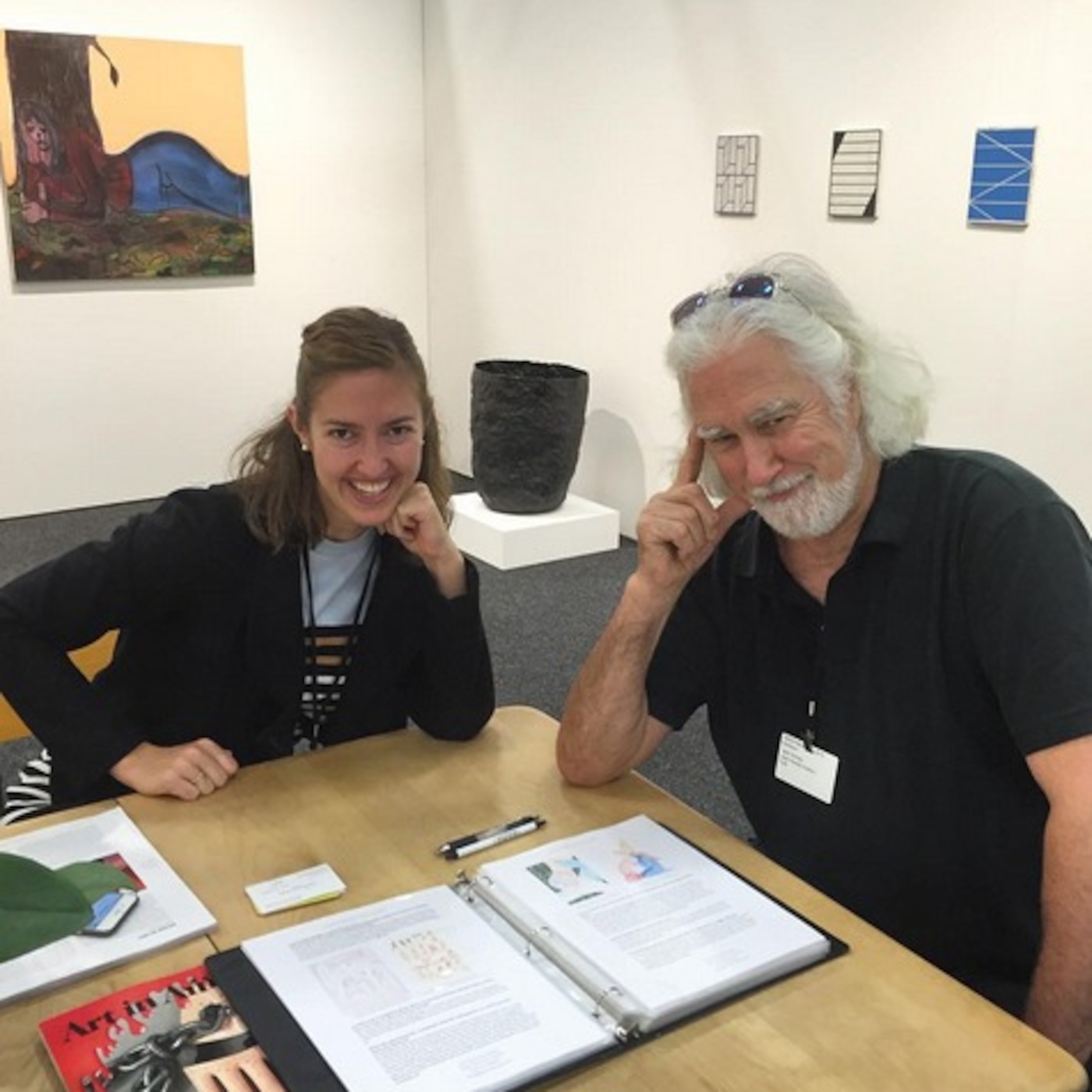
http://theconversationpod.com/ Please subscribe to The Conversation on iTunes, and leave a positive review: https://itunes.apple.com/us/podcast/conversation-artist-podcast/id481461646 New York gallerist Emma Hanley, associate director at her father Jack Hanley's Lower East Side gallery, talks about: Growing up in the Bay Area with two artist parents, and a collector grandmother, and her experiences hanging around and eventually doing small jobs at her dad's gallery in the Mission district of San Francisco; her stints working at Sotheby's and, more recently, Christie's, where she worked up until switching to her post at Jack Hanley Gallery, where she's been a little over a year; how a comment from Jerry Saltz led her to start working for her dad; the challenges of working with artists, including when they get approached by big New York galleries (when the gallery was based in San Francisco); how being a middle child is serving her well in being able to handle artist personalities, and to remain unemotional in their various moments of stress and freaking out, by taking herself out of the equation; how often what the artist is freaking out about is the fact that they need to address any unresolved issues with their work on their own, a reality they typically don't want to face head on, hence the acting out; and how, thanks to having had a lot of strong personality types in her family, she gets along well with both artists and collectors, perfect qualifications for her job. The Conversation on Stitcher (the alternative to iTunes): http://www.stitcher.com/podcast/wwwstitchercompodcasttheconversation/the-conversation-art-podcast?refid=stpr The Conversation on Facebook: http://www.facebook.com/pages/The-Conversation-An-Artist-Podcast/254884424579431 http://instagram.com/artistpodcast Twitter: @artistpodcast Your support of the podcast is very much appreciated- donations can be made via the website, and help keep the show going.
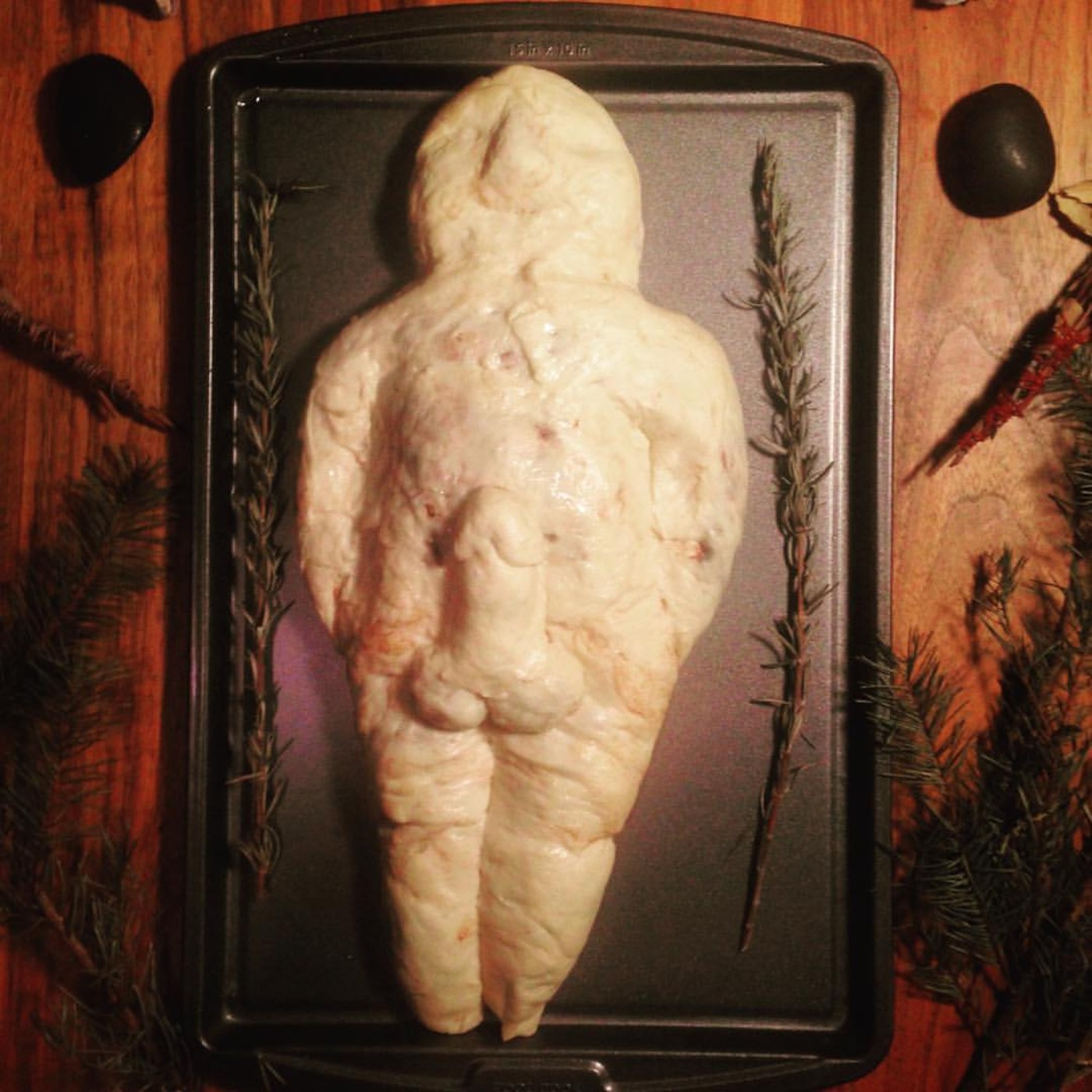
http://theconversationpod.com/ Please subscribe to The Conversation on iTunes, and leave a positive review: https://itunes.apple.com/us/podcast/conversation-artist-podcast/id481461646 Los Angeles-based artist and witch (yes, you read that right) Amanda Yates Garcia, along with co-host Deb Klowden Mann, talks about: Her great craftsman home in the West Adams neighborhood, and how she got in before the gentrification race that's going on now; how she answers the question of what she does by saying that she's a witch, and the ensuing conversation around that, including being a provocateur even when she doesn't feel like being one; artists and witches through the ages, and how the meaning of being a witch can be as diverse as the meanings of being an artist; how a big part of being a witch, for her, is examining authority- who gets to make the rules; how to invoke your spirit figure, whether it's a name that's been invoked many times, from your own culture ideally, or more one of your own created entity; how magic, not unlike art, is not about belief, believing in magic, or believing in art; how she was raised in a Wiccan household with a feminist mother, but who also had a lot of patriarchal ideas; the failings of patriarchy today, and what happened in her "Devouring Patriarchy - Healing the Wounds of the Father" workshop; how, in addition to representing for witches, she's also representing for 'healing,' a maligned word in the context of contemporary art, but she doesn't give a f*ck—it's desperately needed in our world now (that and love); her performance "Capitalism Exorcism;" the subtle distinctions between objects used in performance/ceremony as ritual objects, and becoming art objects; how she is able to sustain herself as a witch, but not an artist; how she's no longer attached to the idea of being known as 'an artist,' an identity that she (and many) was especially attached to out of grad school; and she offers a magical financial tip, having to do with getting (buying) the thing that you yourself are selling. The Conversation on Stitcher (the alternative to iTunes): http://www.stitcher.com/podcast/wwwstitchercompodcasttheconversation/the-conversation-art-podcast?refid=stpr The Conversation on Facebook: http://www.facebook.com/pages/The-Conversation-An-Artist-Podcast/254884424579431 http://instagram.com/artistpodcast Twitter: @artistpodcast Your support of the podcast is very much appreciated- donations can be made via the website, and help keep the show going.
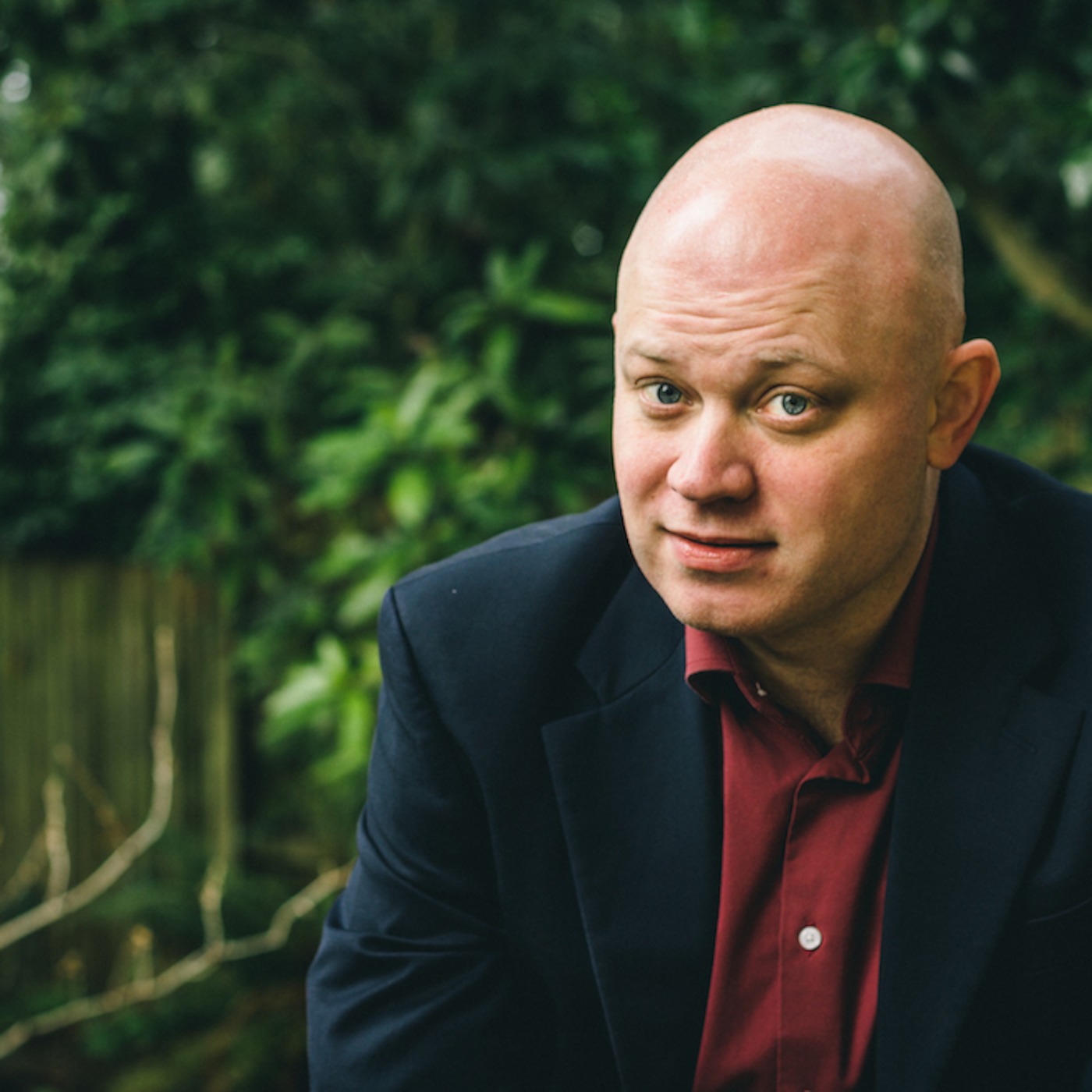
http://theconversationpod.com/ Please subscribe to The Conversation on iTunes, and leave a positive review: https://itunes.apple.com/us/podcast/conversation-artist-podcast/id481461646 Ben Davis, National Critic for ArtNet News and author of 9.5 Theses on Art and Class, talks about: His time in Australia at the (x) conference, and his meetings with artist Ben Quilty (also a social activist work); art and activism, and art & politics; the mutually incompatible art tribes that exist among the different 'art worlds;' how the fact that all the different complaints from various factions of the art world(s) can all be true at once, and how disorienting that can be (for Ben); how outside of the cities where there's a market, the conversation is almost always about social aesthetics (what Ben calls "social practice") instead, and how that's where government arts support tends to gravitate; how some of the most interesting art – art that's 'underground and weird' - is being made outside of the art world bubble, among them Fee Plumley, an artist based in Adelaide; sections from his book "9.5 Theses on Art and Class" -- the title and also a specific chapter of his book which was originally written as a pamphlet and intervention of an art show in NY on art and class – including trickle-down theories of both economics and art; and art education, and particularly what for Ben was a profoundly moving article: A Eulogy for Hope: The Silent Murder of Gallery 37 ; what explains the fact that grad schools are made up of 2/3 women, but galleries represent 1/3 women…what happened in between?; what the mechanisms are that make up the art world/how it works; his piece "Do you have to be rich to make it as an artist?"; how the conversation about the art market is a complete dead end; how cities with much smaller art markets, but much cheaper housing, are better for artists; and how without the writing, without the intellectual circulation around the production of art, art's just an overpriced piece of decoration. The Conversation on Stitcher (the alternative to iTunes): http://www.stitcher.com/podcast/wwwstitchercompodcasttheconversation/the-conversation-art-podcast?refid=stpr The Conversation on Facebook: http://www.facebook.com/pages/The-Conversation-An-Artist-Podcast/254884424579431 http://instagram.com/artistpodcast Twitter: @artistpodcast Your support of the podcast is very much appreciated- donations can be made via the website, and help keep the show going.
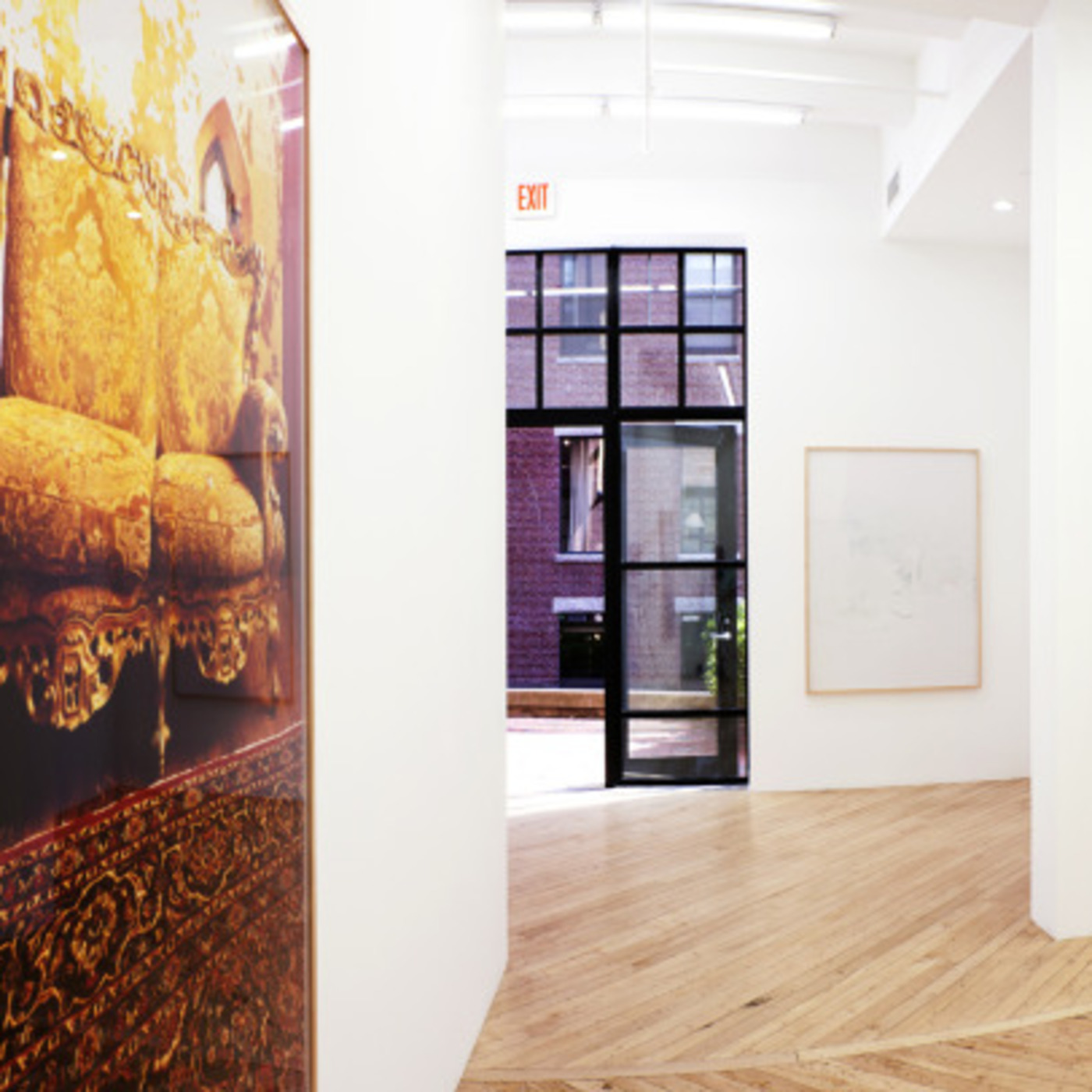
http://theconversationpod.com/ Please subscribe to The Conversation on iTunes, and leave a positive review: https://itunes.apple.com/us/podcast/conversation-artist-podcast/id481461646 Boston gallerist Anthony Greaney talks about: His commute to Boston from outside the city proper; his day job at Harvard, where he designs exhibitions for their museums of science and culture (Harvard Museum of Natural History, Harvard Semitic Museum, Peabody Museum); working for various dealers in New York as preparation for running his own gallery, of which he talks about its various challenges, especially out of Boston, with NY in such close proximity; some of the first artists he showed, who are now L.A. artists (and why he thinks L.A. is a better art city than New York); why it made sense to him to return to Boston after cutting his teeth at various New York galleries, what with the exorbitant costs of starting up a gallery in NY, and how being in Boston gave him the opportunity to do what he wanted to do, as opposed to what he had to do; the struggles of keeping a gallery running logistically, and why he kept his day job while running it; how it's no longer the case anymore that you have to 'fake it till you make it,' and that new, young galleries that are succeeding are doing it as part-time endeavors. The Conversation on Stitcher (the alternative to iTunes): http://www.stitcher.com/podcast/wwwstitchercompodcasttheconversation/the-conversation-art-podcast?refid=stpr The Conversation on Facebook: http://www.facebook.com/pages/The-Conversation-An-Artist-Podcast/254884424579431 http://instagram.com/artistpodcast Twitter: @artistpodcast Your support of the podcast is very much appreciated- donations can be made via the website, and help keep the show going.
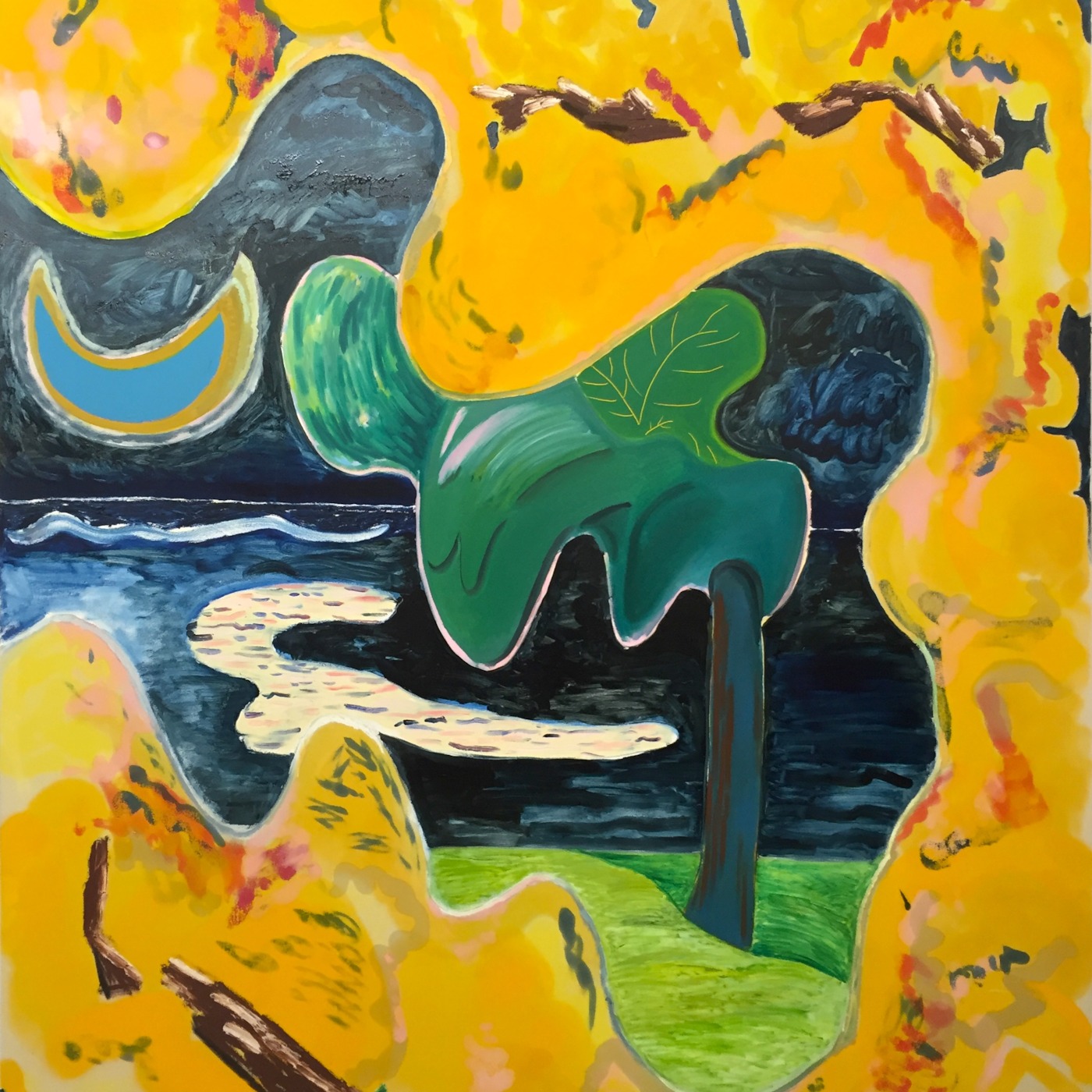
http://theconversationpod.com/ Please subscribe to The Conversation on iTunes, and leave a positive review: https://itunes.apple.com/us/podcast/conversation-artist-podcast/id481461646 Brooklyn-based painter Shara Hughes talks about: Being from Atlanta, and living between there, New York, and various cities where she did residencies; evolving as a New York artist while spending time in Atlanta, Denmark, and various residencies around the U.S.; having a hard time adjusting to living in New York initially, how she felt lonely and out of sorts finding friends beyond just colleagues, despite her career going well; the different levels of success of her various artist residency friends living in New York – some of whom were doing much better than she was, and others who essentially disappeared from view; how last year (in April, 2015), after American Contemporary Gallery closed, she became "single" (without gallery representation) for the first time since 2004, when Rivington Arms picked her up, and that there are actually opportunities in becoming "single" again; how she's in the midst of "dating" several prospects, but that it's a stressful process, partially because it's difficult to know where to go to get good advice and deal with getting too many unwanted opinions; and her various day jobs, including working in the bakery at a Whole Foods…which she hated. The Conversation on Stitcher (the alternative to iTunes): http://www.stitcher.com/podcast/wwwstitchercompodcasttheconversation/the-conversation-art-podcast?refid=stpr The Conversation on Facebook: http://www.facebook.com/pages/The-Conversation-An-Artist-Podcast/254884424579431 http://instagram.com/artistpodcast Twitter: @artistpodcast Your support of the podcast is very much appreciated- donations can be made via the website, and help keep the show going.
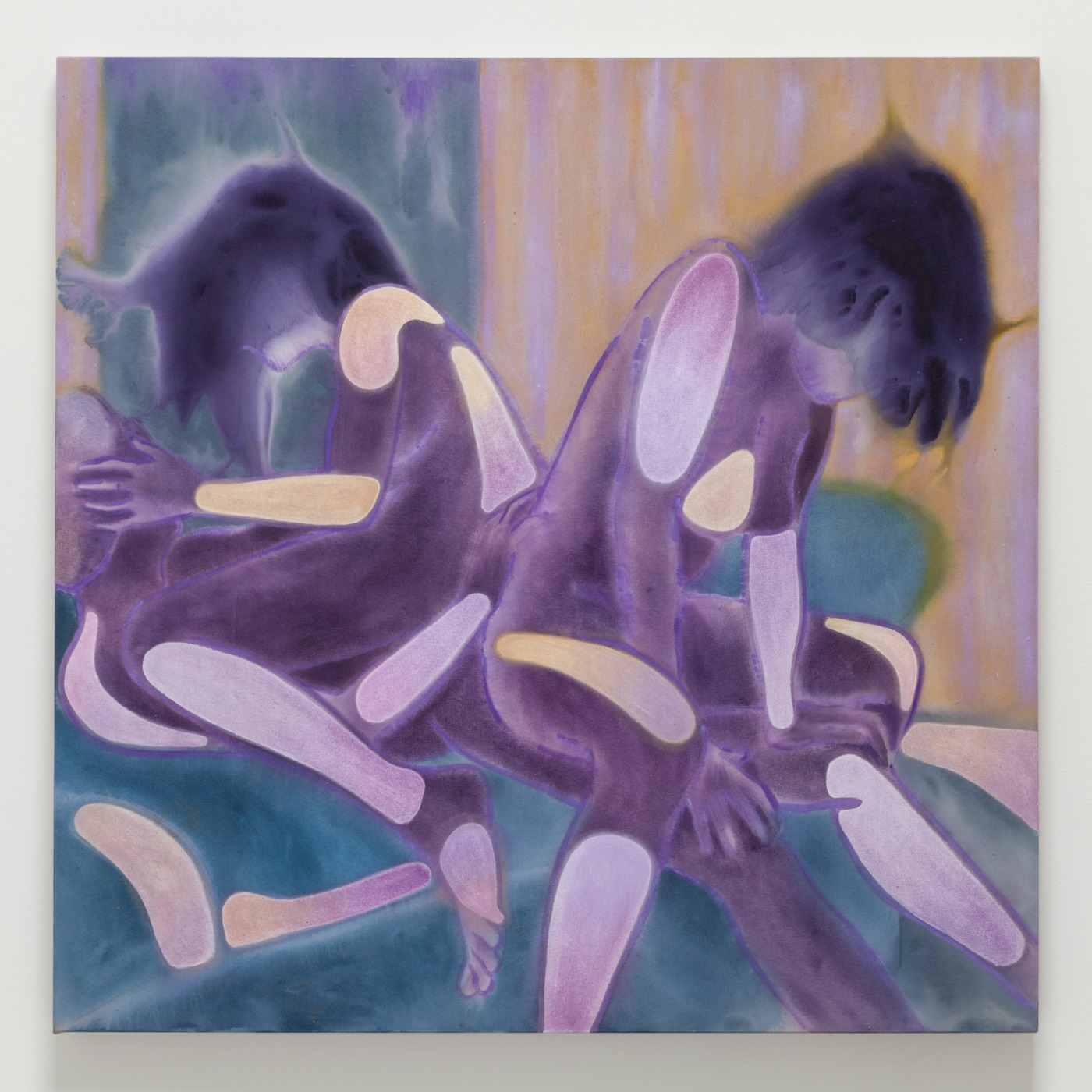
http://theconversationpod.com/ Please subscribe to The Conversation on iTunes, and leave a positive review: https://itunes.apple.com/us/podcast/conversation-artist-podcast/id481461646 Los Angeles-based painter Max Maslansky, along with co-host Deb Klowden Mann, talks about: His Kchung radio show Riffin', and his most memorable guest on the show (Jake Longstreth, with whom he debated about The Eagles); how he started the current iteration of his porn-based work, back in 2010, when he began collecting old photographs and storing them on Facebook, in both 'public' and 'private' collections, then selecting particular images to paint onto bedsheets; how porn, even in the art world, still has a taboo association to it, and how the porn Maslansky uses is quaint compared to what's out there now, and his point that dopamine levels are higher in porn consumption now supports that, because people need stronger fixes than ever; his experience getting curated into the Hammer Museum's Made In L.A. 2014; how being practical led him to keep his job working at Richard Telles gallery after this success, though he went from full-time to part-time; what he's learned about artists and the art world from working at the gallery, a gig he's had much longer than he thought he would; and how artists who become big successes may or may not maintain them, and that a significant part of their rise is beyond their control. The Conversation on Stitcher (the alternative to iTunes): http://www.stitcher.com/podcast/wwwstitchercompodcasttheconversation/the-conversation-art-podcast?refid=stpr The Conversation on Facebook: http://www.facebook.com/pages/The-Conversation-An-Artist-Podcast/254884424579431 http://instagram.com/artistpodcast Twitter: @artistpodcast Your support of the podcast is very much appreciated- donations can be made via the website, and help keep the show going.
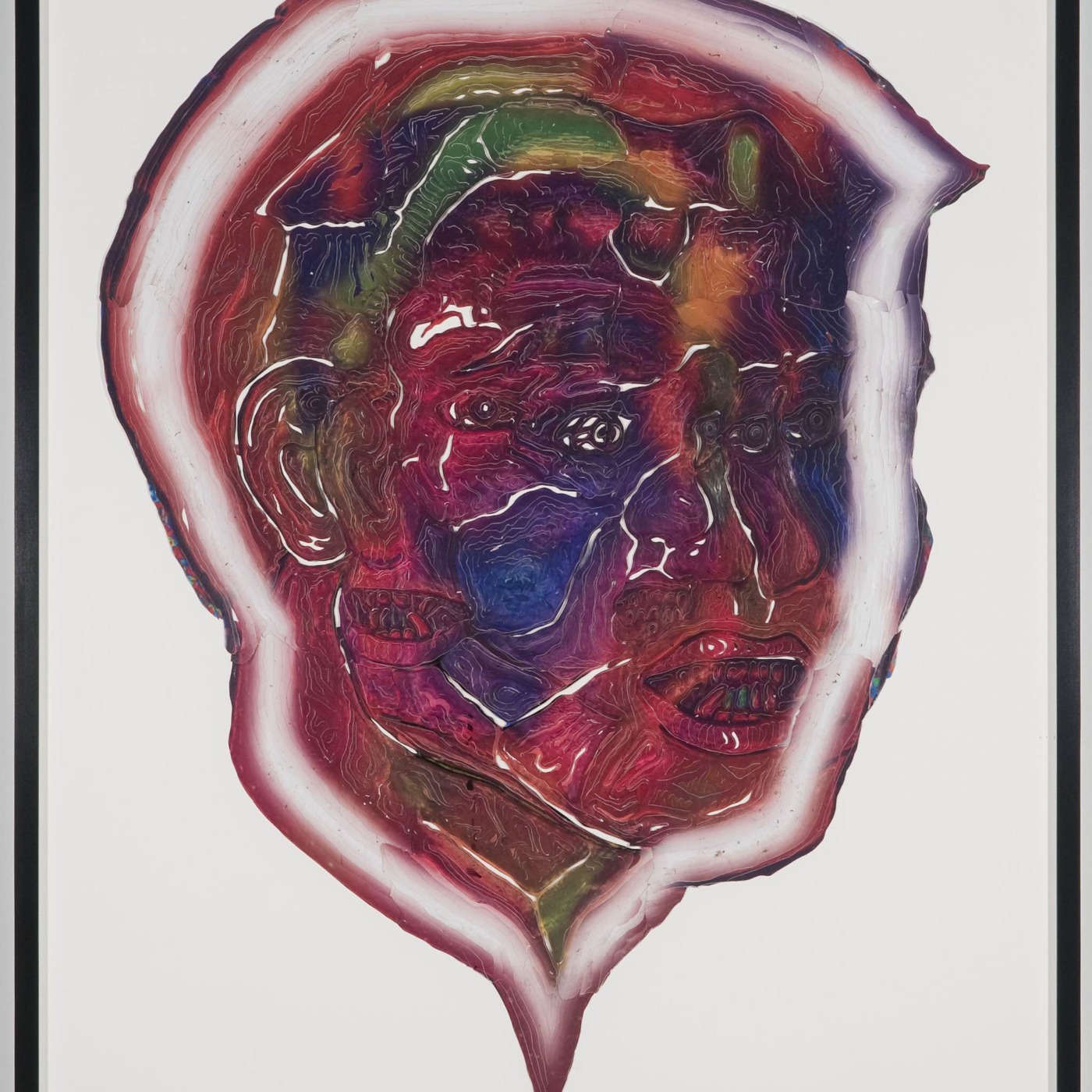
http://theconversationpod.com/ Please subscribe to The Conversation on iTunes, and leave a positive review: https://itunes.apple.com/us/podcast/conversation-artist-podcast/id481461646 Fisher's Island-based artist Jacques Louis Vidal talks about: Living on Fisher's Island, off the coast of Long Island and Connecticut, where he is the resident director for Lighthouse Works, an artist's residence; what his life is like there, between taking care of the residents (mainly cooking them upscale meals) and making his art in a studio off site; his co-running the gallery Know More Games in Carroll Gardens, Brooklyn, and its heady days circa 2011/2012, shortly after which he left the gallery for his residency gig; his creative project corresponding and making art & language with a friend from middle school who he learned is incarcerated on death row, someone who he used to do graffiti and get into trouble with; his side life committing petty crimes, which continued into adulthood; his problems with authority, both in general and in the art world; the alternative school he went to during high school, for kids who get in trouble a lot- where his therapist told him that he was capable of dealing with darker things than other people…which eventually allowed him to in turn convert his darkness into his art; and how, as a landlord for the gallerists of 247365, he lowered their rent with the agreement that they would give him a show with them, happening in Nov. 2016; and a great story from one of his residency directing stints that demonstrates how such a severe lack of distraction impacts the subtextual levels of interpersonal relations. The Conversation on Stitcher (the alternative to iTunes): http://www.stitcher.com/podcast/wwwstitchercompodcasttheconversation/the-conversation-art-podcast?refid=stpr The Conversation on Facebook: http://www.facebook.com/pages/The-Conversation-An-Artist-Podcast/254884424579431 http://instagram.com/artistpodcast Twitter: @artistpodcast Your support of the podcast is very much appreciated- donations can be made via the website, and help keep the show going.
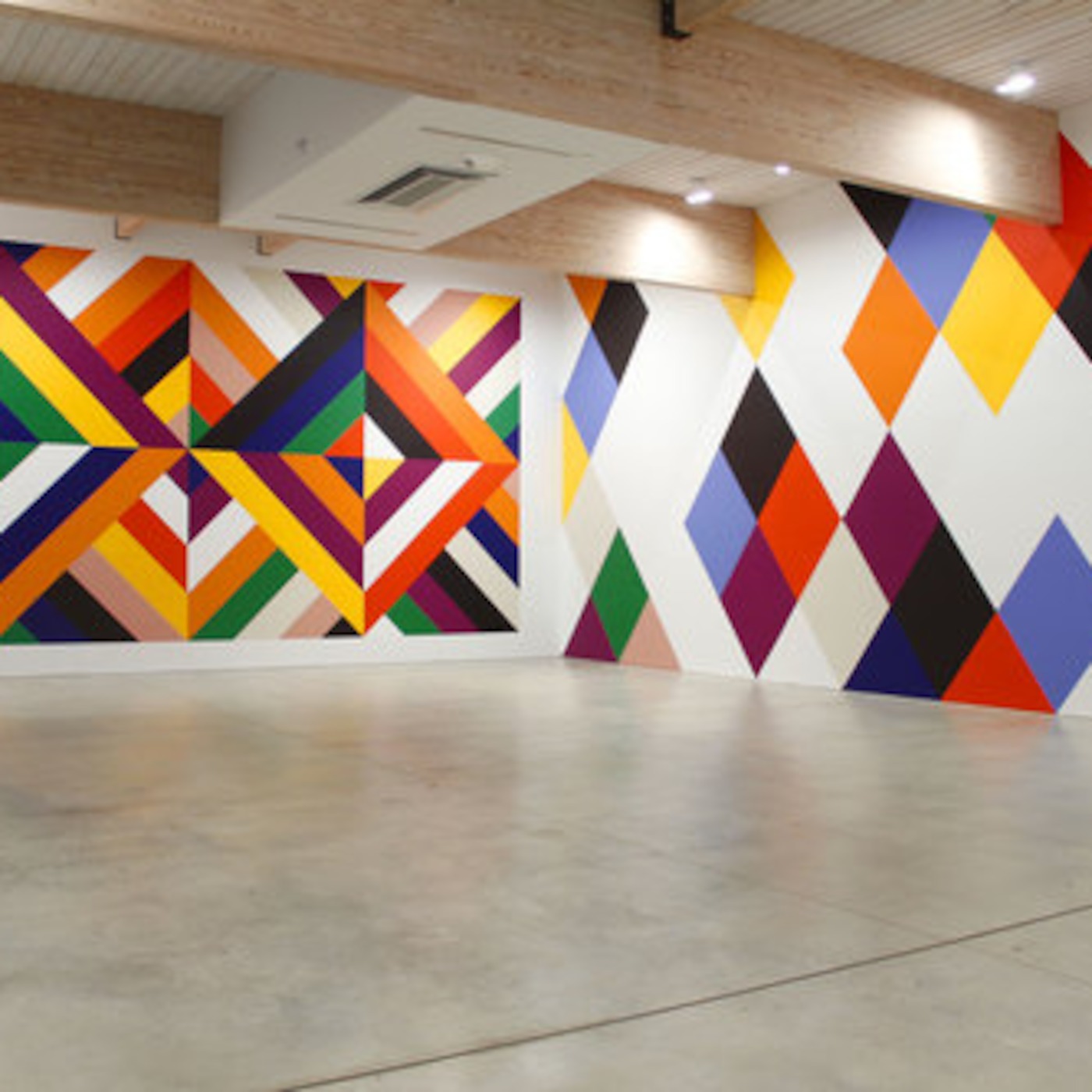
The Conversation's website: http://theconversationpod.com/ Please subscribe to The Conversation on iTunes, and leave a positive review: https://itunes.apple.com/us/podcast/conversation-artist-podcast/id481461646 Brooklyn-based painter Stephen Westfall talks about: Living in Brooklyn (Red Hook), where the rent on his loft will soon be going up 18%, and how he's considering living elsewhere in the city, or possibly New Jersey (since he teaches at Rutgers); the crazy real estate market, via shell properties and so on, yet how their might be a tiny glimmer of hope; how his best year of sales, in 2011/12, allowed him the opportunity to purchase a cottage upstate, but since his income has dropped since then his margins are on the tight side (which is noteworthy considering something as basic as getting rid of a dying tree on that property could be a serious expense); his coming of age in San Francisco as an anxiety filled youth, and his subsequent emergence as an artist via UC Santa Barbara's College of Creative Studies, where he began as a literary major; and we launch into a spirited debate about abstraction, including Stephen riffing on the ambiguity between figuration and abstraction; the 'Big Bang' of painting, starting with representation and eventually leading to, after five centuries, being about painting itself, and abstraction as the next 'Big Bang'; that there's "abstract painting because there are more things to paint abstractly," also known as 'shark's teeth,' in which "the more things you have, the more spaces you have between things"; the willingness to have a suspension of belief, and how, unique to painting, it is both an imagined space and a thing at the same time; and how he didn't go to openings for 10 years after a painful breakup with a fellow artist, and how, in turn, he learned that legends in the art world can be created just by not going out to openings for a while. The Conversation on Stitcher (the alternative to iTunes): http://www.stitcher.com/podcast/wwwstitchercompodcasttheconversation/the-conversation-art-podcast?refid=stpr The Conversation on Facebook: http://www.facebook.com/pages/The-Conversation-An-Artist-Podcast/254884424579431 http://instagram.com/artistpodcast Twitter: @artistpodcast Your support of the podcast is very much appreciated- donations can be made via the website, and help keep the show going.
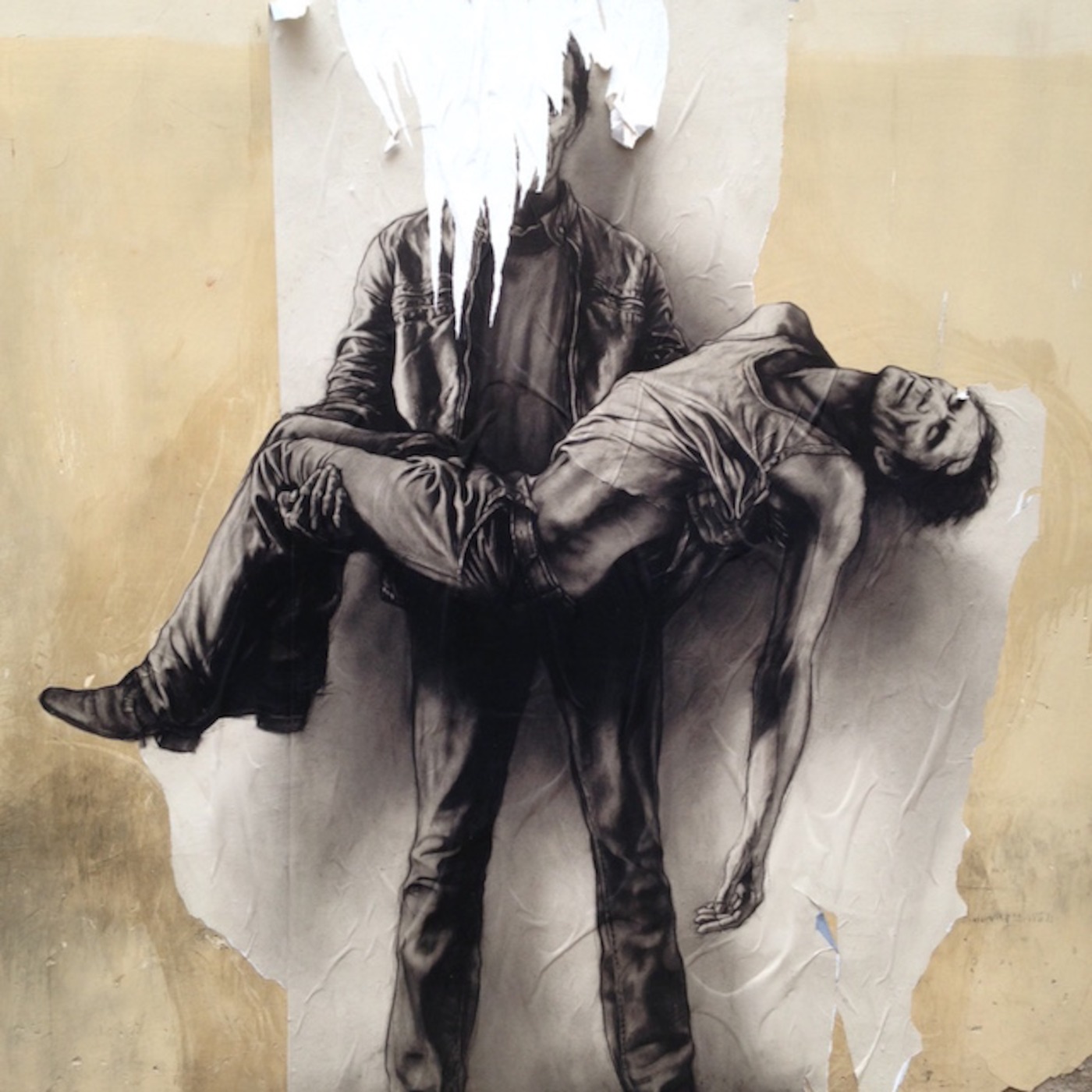
Artist and Hyperallergic writer and editor Thomas Micchelli talks about: His working class roots in New Jersey; how his busy life (full-time job, making his art, seeing shows, writing and editing for Hyperallergic Weekend) keeps him from time-consuming ‘social’ conversations; how the most gratifying feedback he gets on his writing is when an artist says that he’s “got” their work; how he doesn’t see himself as someone who makes judgments in his reviews but rather as someone who explores his personal reaction; how Jeff Koons’ retrospective at the Whitney showed a total concession to the market, and why; other topics include the artist Judith Bernstein and her late-in-life re-emergence as an artist of consequence in NY after decades in the wilderness treated like a pariah; the late, legendary Italian filmmaker, artist and poet Pier Paolo Pasolini – a gay communist atheist at a time when being gay in Italy was illegal – who made one of the darkest films ever: Salo, or 120 Days of Sodom; the most memorable review he’s written (also his hardest to write); the fact that he’s most drawn to abstraction as a viewer (because it comes down to his interest in formal issues, and abstraction lays them out in very stark terms), despite being a figurative painter himself; and how growing up working class led him to making figurative art as opposed to abstraction. The Conversation's website: http://theconversationpod.com/ Please subscribe to The Conversation on iTunes, and leave a positive review: https://itunes.apple.com/us/podcast/conversation-artist-podcast/id481461646 The Conversation on Stitcher (the alternative to iTunes): http://www.stitcher.com/podcast/wwwstitchercompodcasttheconversation/the-conversation-art-podcast?refid=stpr The Conversation on Facebook: http://www.facebook.com/pages/The-Conversation-An-Artist-Podcast/254884424579431 http://instagram.com/artistpodcast Twitter: @artistpodcast Your support of the podcast is very much appreciated- donations can be made via the website, and help keep the show going.
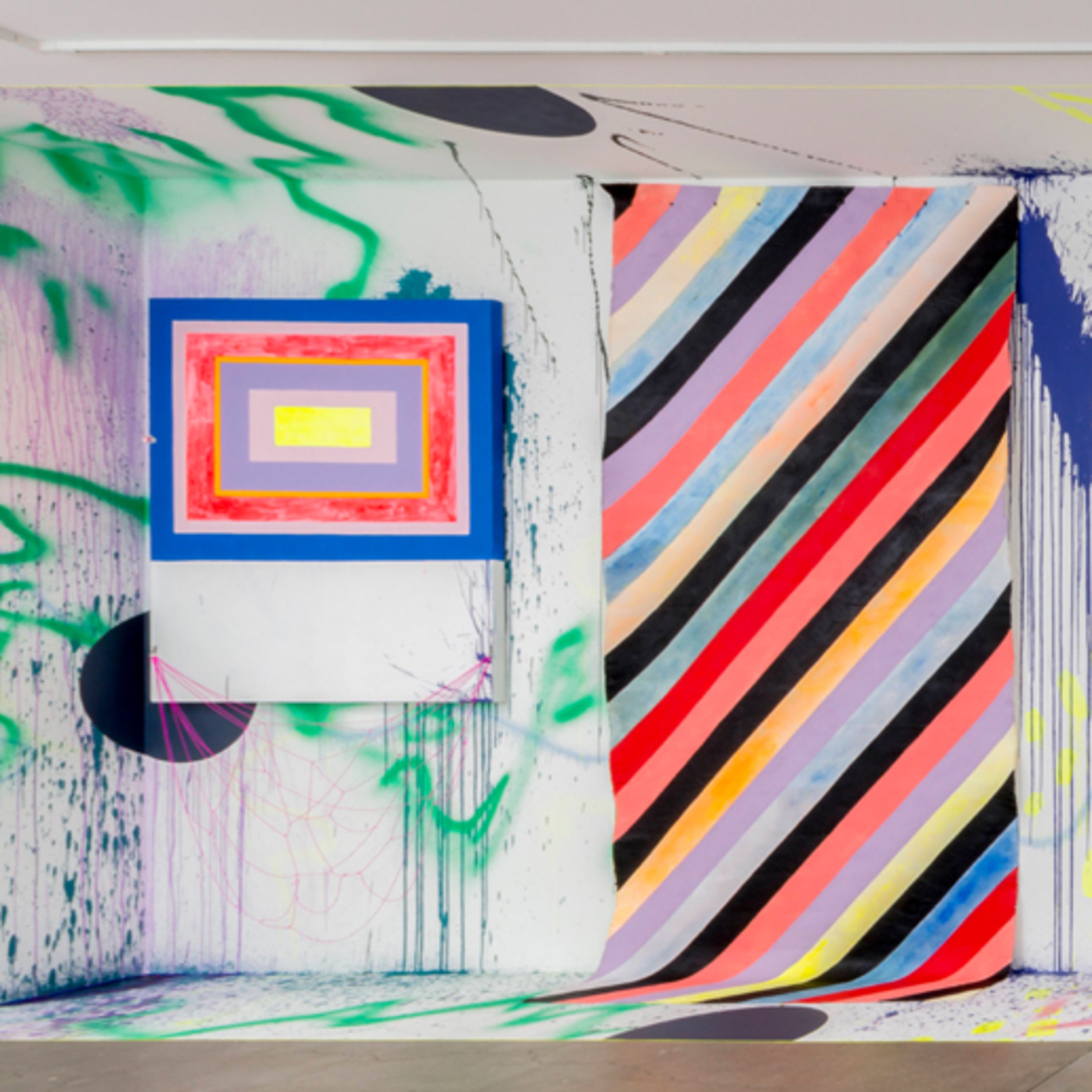
Los Angeles-based painter and sculptor Sarah Cain talks about: living in Highland Park, and the trials and tribulations she went through in buying a house (with a studio) there; moving to France as a foreign exchange student at 15, with only a year of French under her belt; going to grad school at UC Berkeley, as opposed to the Cooper Union-to-Yale dual track that she thought was the ticket at the time; being a woman who goes after what she wants, and, as a woman in the art world who's been accused of being too forthright with certain museum curators; her ambition, and how that's informed her career, including getting out of her Upstate New York hometown; the lack of discovery and experimentation in some art; her reputation while in San Francisco and how it's changed since moving to L.A. in 2007; the many routes to success in the art world, whether through the work and NOT being an immense socialite, or the 'fake it till you make it' approach; her relationship to class, having come from a lower-middle class background, to now frequently being in the company of the 1%; how she works in the studio vs. how she works onsite when doing over-the-top installations; and what she thinks about abstraction in its different forms, including her thoughts on having made it when it was very unpopular, vs. now when it's become so popular. The Conversation's website: http://theconversationpod.com/ Please subscribe to The Conversation on iTunes, and leave a positive review: https://itunes.apple.com/us/podcast/conversation-artist-podcast/id481461646 The Conversation on Stitcher (the alternative to iTunes): http://www.stitcher.com/podcast/wwwstitchercompodcasttheconversation/the-conversation-art-podcast?refid=stpr The Conversation on Facebook: http://www.facebook.com/pages/The-Conversation-An-Artist-Podcast/254884424579431 http://instagram.com/artistpodcast Twitter: @artistpodcast Your support of the podcast is very much appreciated- donations can be made via the website, and help keep the show going.
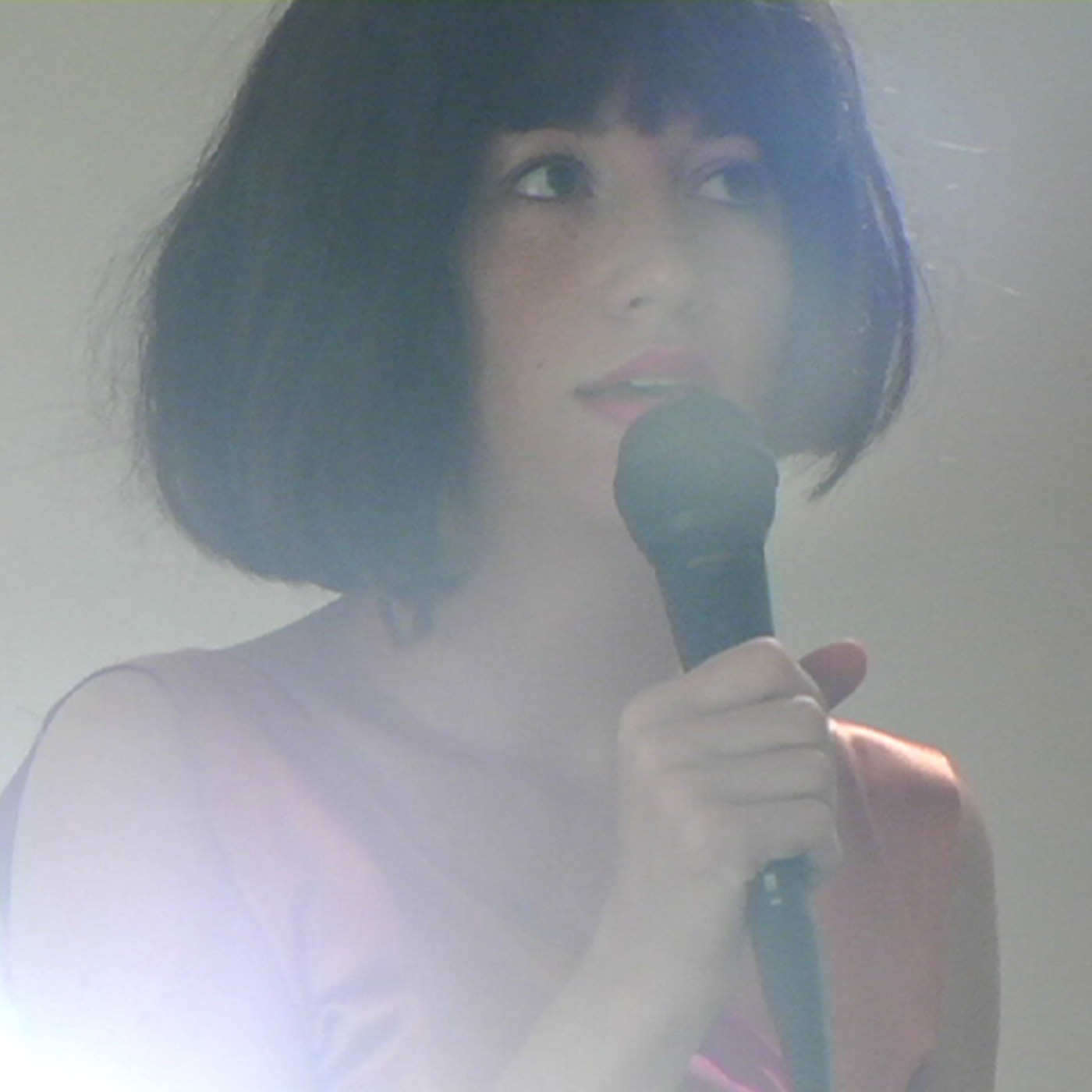
New York-based artist and performer Jennifer Sullivan talks about: Her neighborhood of Ridgewood, Queens (the non-fancy section, as opposed to the one adjacent to Bushwick), where she's led tours; her performing, both in character as Julian Schnabel, and doing standup comedy, mainly at the Funny Hole, her local speak easy/artist hangout; her comedy about being single, and her real life being single, and how the two have dovetailed; her performance anxiety-induced nausea before standup comedy performances (and she defines comedy as courageously sharing strange ideas you wouldn't share in normal life); the weirdness and scenester-ness of the art world; her dating life, including learning to be happy while single, which will in turn make her a better partner when she meets someone; how, through being in analysis, she's come to a place of being very open, with her emotions very close to the surface. All this combined leads to a very intimate and deep episode, yet not without humor—classic Conversation. The Conversation's website: http://theconversationpod.com/ Please subscribe to The Conversation on iTunes, and leave a positive review: https://itunes.apple.com/us/podcast/conversation-artist-podcast/id481461646 The Conversation on Stitcher (the alternative to iTunes): http://www.stitcher.com/podcast/wwwstitchercompodcasttheconversation/the-conversation-art-podcast?refid=stpr The Conversation on Facebook: http://www.facebook.com/pages/The-Conversation-An-Artist-Podcast/254884424579431 http://instagram.com/artistpodcast Twitter: @artistpodcast Your support of the podcast is very much appreciated- donations can be made via the website, and help keep the show going.
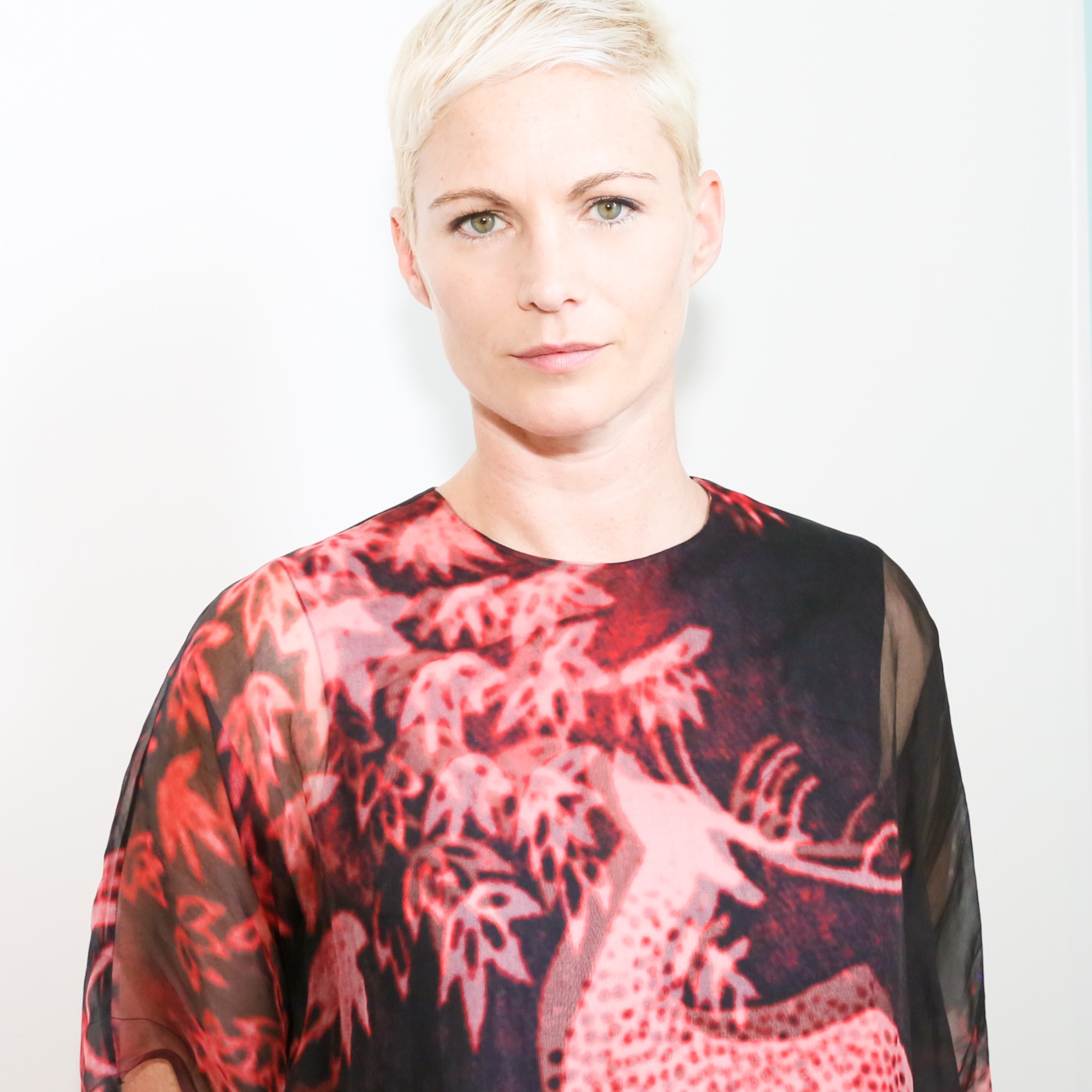
Helen Toomer, the director of the PULSE New York and Miami Contemporary Art Fairs, talks about: what led her to come to the States, New York in specific, from England, and how she's the black sheep of the family since she's the only one who left her home country; her two years running Toomer Labzda on the Lower East Side, which she ran with her now ex-husband, Chris Labzda, a fellow Brit, and an artist, who she married after nine months together, and what she learned from that time as a gallerist; how she got the job with PULSE, what goes into running an art fair- including selecting exhibitors and keeping them happy; and how to best manage your time as an art fair-goer or exhibitor. The Conversation's website: http://theconversationpod.com/ Please subscribe to The Conversation on iTunes, and leave a positive review: https://itunes.apple.com/us/podcast/conversation-artist-podcast/id481461646 The Conversation on Stitcher (the alternative to iTunes): http://www.stitcher.com/podcast/wwwstitchercompodcasttheconversation/the-conversation-art-podcast?refid=stpr The Conversation on Facebook: http://www.facebook.com/pages/The-Conversation-An-Artist-Podcast/254884424579431 http://instagram.com/artistpodcast Twitter: @artistpodcast Your support of the podcast is very much appreciated- donations can be made via the website, and help keep the show going.
New York-based painter Mark Thomas Gibson (http://www.fredericksfreisergallery.com/artists/mark-thomas-gibson) talks about: Race in art relations; being a black artist asked by both whites and blacks: 'where is your ethnicity in your work?'; meeting Houston-based artist Trenton Doyle Hancock; why he took 10 years off before applying to grad school (9/11); what led him to grad school (Yale) despite his reservations; and what it's like being an artist in Bushwick, Brooklyn. The Conversation's website: http://theconversationpod.com/ Please subscribe to The Conversation on iTunes, and leave a positive review: https://itunes.apple.com/us/podcast/conversation-artist-podcast/id481461646 The Conversation on Stitcher (the alternative to iTunes): http://www.stitcher.com/podcast/wwwstitchercompodcasttheconversation/the-conversation-art-podcast?refid=stpr The Conversation on Facebook: http://www.facebook.com/pages/The-Conversation-An-Artist-Podcast/254884424579431 http://instagram.com/artistpodcast Twitter: @artistpodcast Your support of the podcast is very much appreciated- donations can be made via the website, and help keep the show going.
9/11, art interviews, artist interviews, art preparator, bushwick, comic books, contemporary art, crozier, doug ashford, fine art, fredericks freiser, graphic novels, jeffrey chaida, manfiest destiny, matthew marks, modus fort, the alamo, visual art, werewolves, yalemfa, zelda
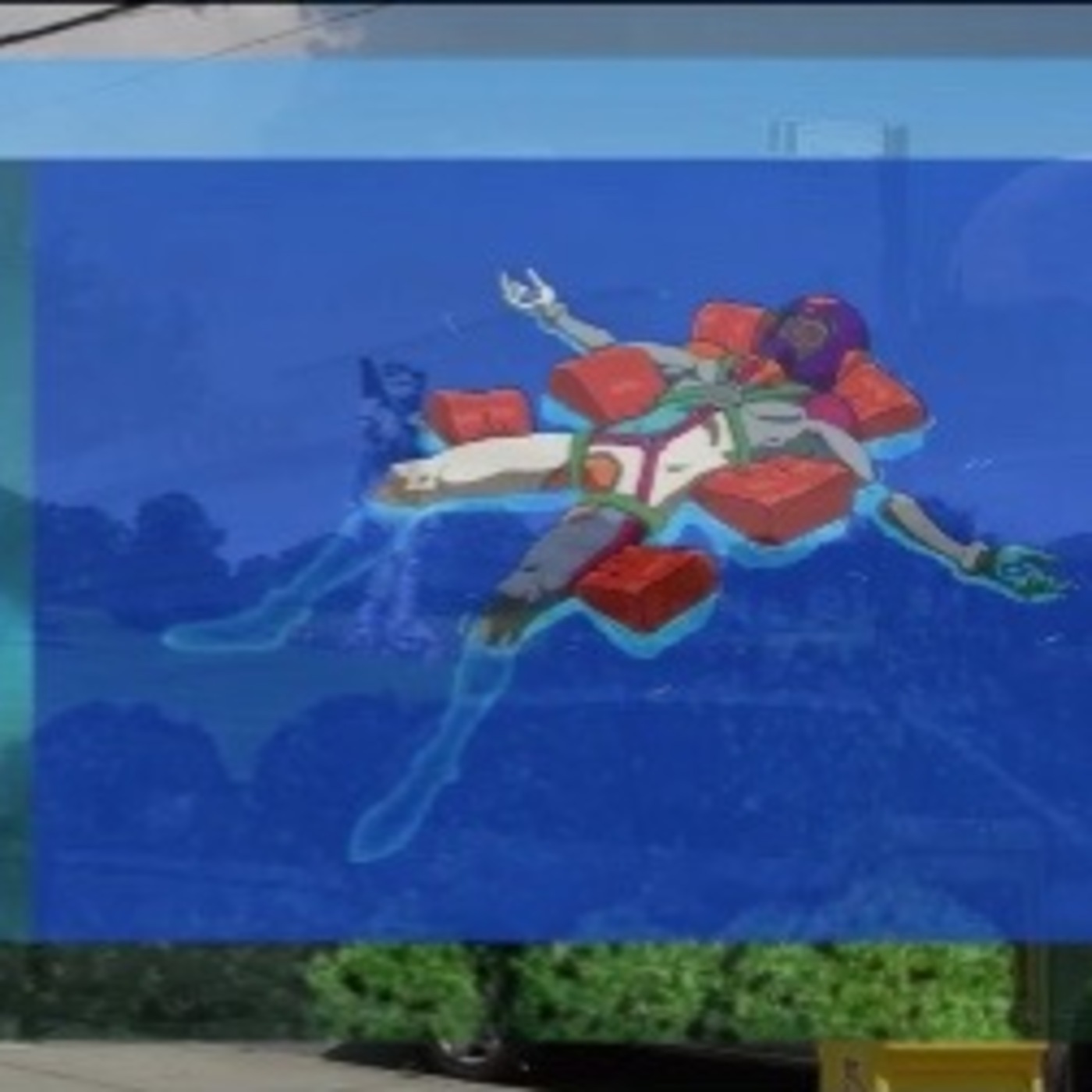
New York video & animation artist Adam Shecter talks about: His job history after moving to New York (from school in Montreal at McGill University), including being a receptionist and a creator of visual internals among other gigs; his animation videos, including his relatively epic New Year, and how he anticipates viewers will take it in in a gallery (vs. film) context; how he came to show with the Lower East Side gallery 11R (formerly Eleven Rivington); and why he values having a full-time job (as an arts technology teacher at an all-boys' school) over being a full-time artist, as it gives him the time and freedom to make what he wants to make at the pace he wants to make it. The Conversation's website: http://theconversationpod.com/ Please subscribe to The Conversation on iTunes, and leave a positive review: https://itunes.apple.com/us/podcast/conversation-artist-podcast/id481461646 The Conversation on Stitcher (the alternative to iTunes): http://www.stitcher.com/podcast/wwwstitchercompodcasttheconversation/the-conversation-art-podcast?refid=stpr The Conversation on Facebook: http://www.facebook.com/pages/The-Conversation-An-Artist-Podcast/254884424579431 http://instagram.com/artistpodcast Twitter: @artistpodcast Your support of the podcast is very much appreciated- donations can be made via the website, and help keep the show going.
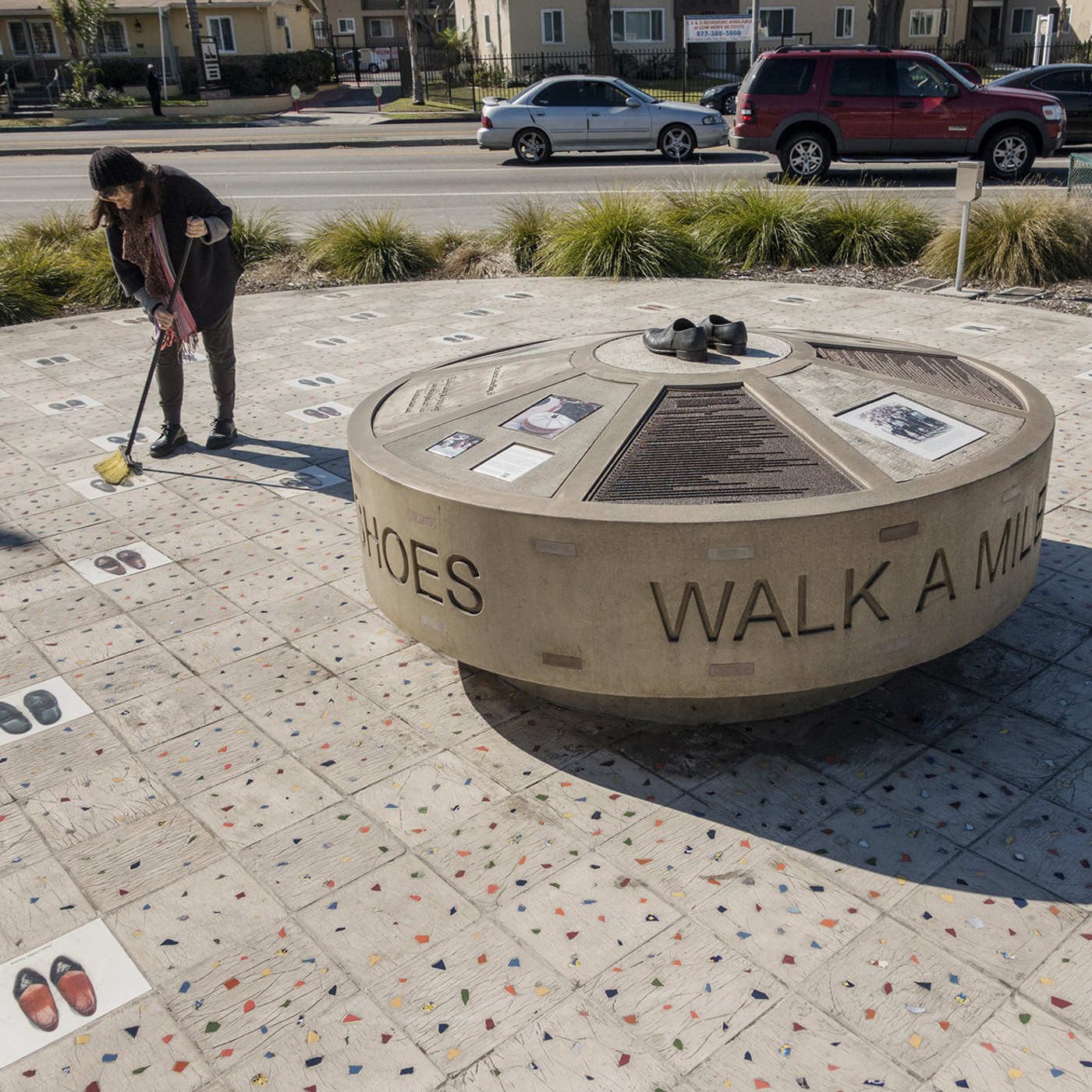
Veteran Los Angeles artist Kim Abeles on: living in downtown L.A. in the early days, from the late 70s to now; her smog project, in which she lets objects including fine dishware blacken on the roof of her building from smog and car exhaust; her public art works, including Walk a Mile in My Shoes, a sculptural tribute to Martin Luther King Jr. that finished at his eponymous Boulevard; her 96-year-old mother, who lives on her own in L.A.'s Little Tokyo, through Kim's doing; and her move to finally buy a place with her husband, photographer - Ken Marchionno, in Crestline, in the mountains about 90 minutes outside of L.A. The Conversation's website: http://theconversationpod.com/ Please subscribe to The Conversation on iTunes, and leave a positive review: https://itunes.apple.com/us/podcast/conversation-artist-podcast/id481461646 The Conversation on Stitcher (the alternative to iTunes): http://www.stitcher.com/podcast/wwwstitchercompodcasttheconversation/the-conversation-art-podcast?refid=stpr The Conversation on Facebook: http://www.facebook.com/pages/The-Conversation-An-Artist-Podcast/254884424579431 http://instagram.com/artistpodcast Twitter: @artistpodcast Your support of the podcast is very much appreciated- donations can be made via the website, and help keep the show going.
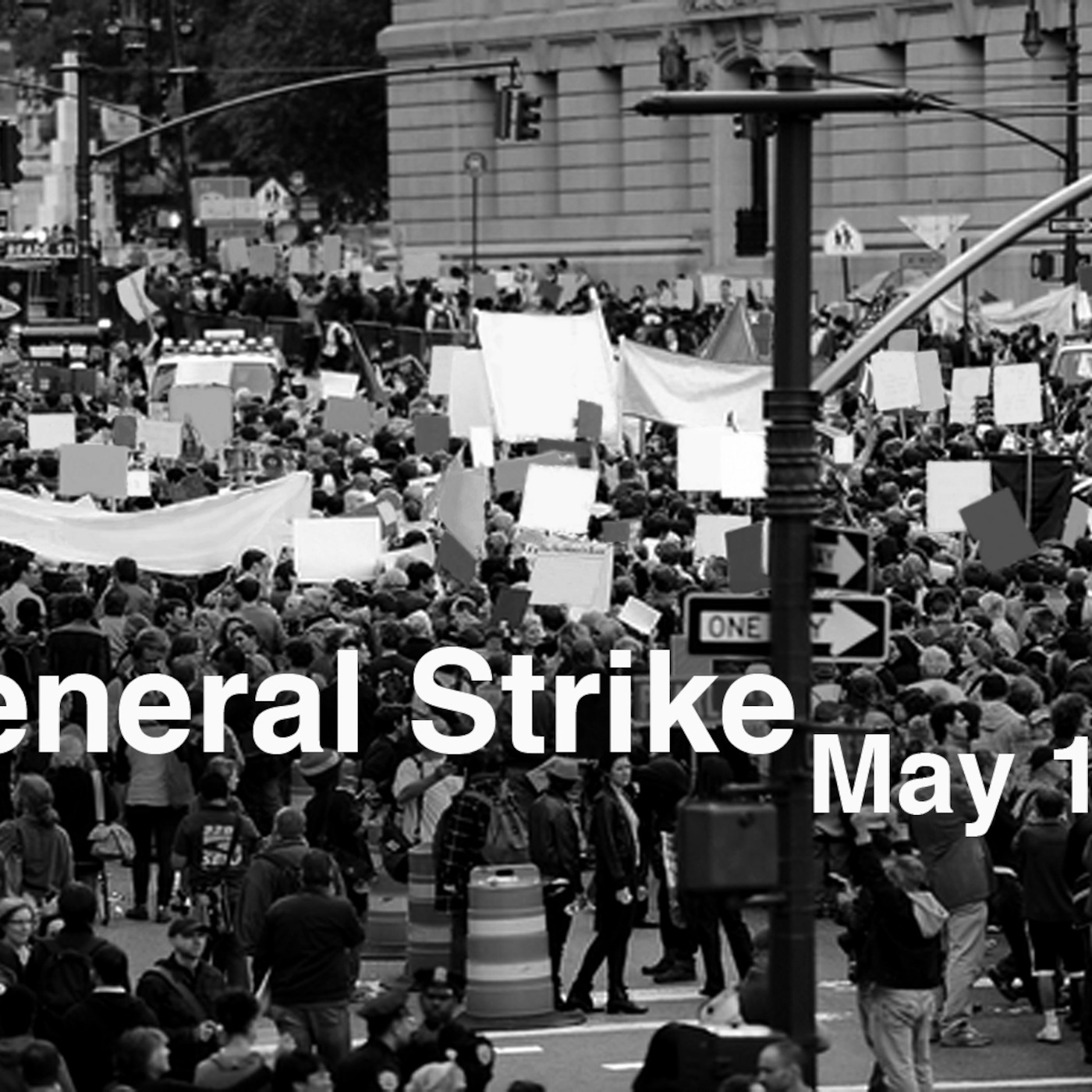
Brooklyn-based artist Colleen Asper talks about: Her short-lived fight against a rogue landlord and subsequently learning about renter's rights; her experience with Occupy Wall Street and other activist groups, and the surprisingly regressive anti-feminist attitudes she experienced there as well as in academia; her teaching experiences and wisdom learned at art schools including Massachusetts College of Art and Design and Yale (among the 14 schools she's now taught at); and how her training in ballet has more recently translated into her painting, and her explanation of why dance in contemporary art has become something of a trend. The Conversation's website: http://theconversationpod.com/ Please subscribe to The Conversation on iTunes, and leave a positive review: https://itunes.apple.com/us/podcast/conversation-artist-podcast/id481461646 The Conversation on Stitcher (the alternative to iTunes): http://www.stitcher.com/podcast/wwwstitchercompodcasttheconversation/the-conversation-art-podcast?refid=stpr The Conversation on Facebook: http://www.facebook.com/pages/The-Conversation-An-Artist-Podcast/254884424579431 http://instagram.com/artistpodcast Twitter: @artistpodcast Your support of the podcast is very much appreciated- donations can be made via the website, and help keep the show going.
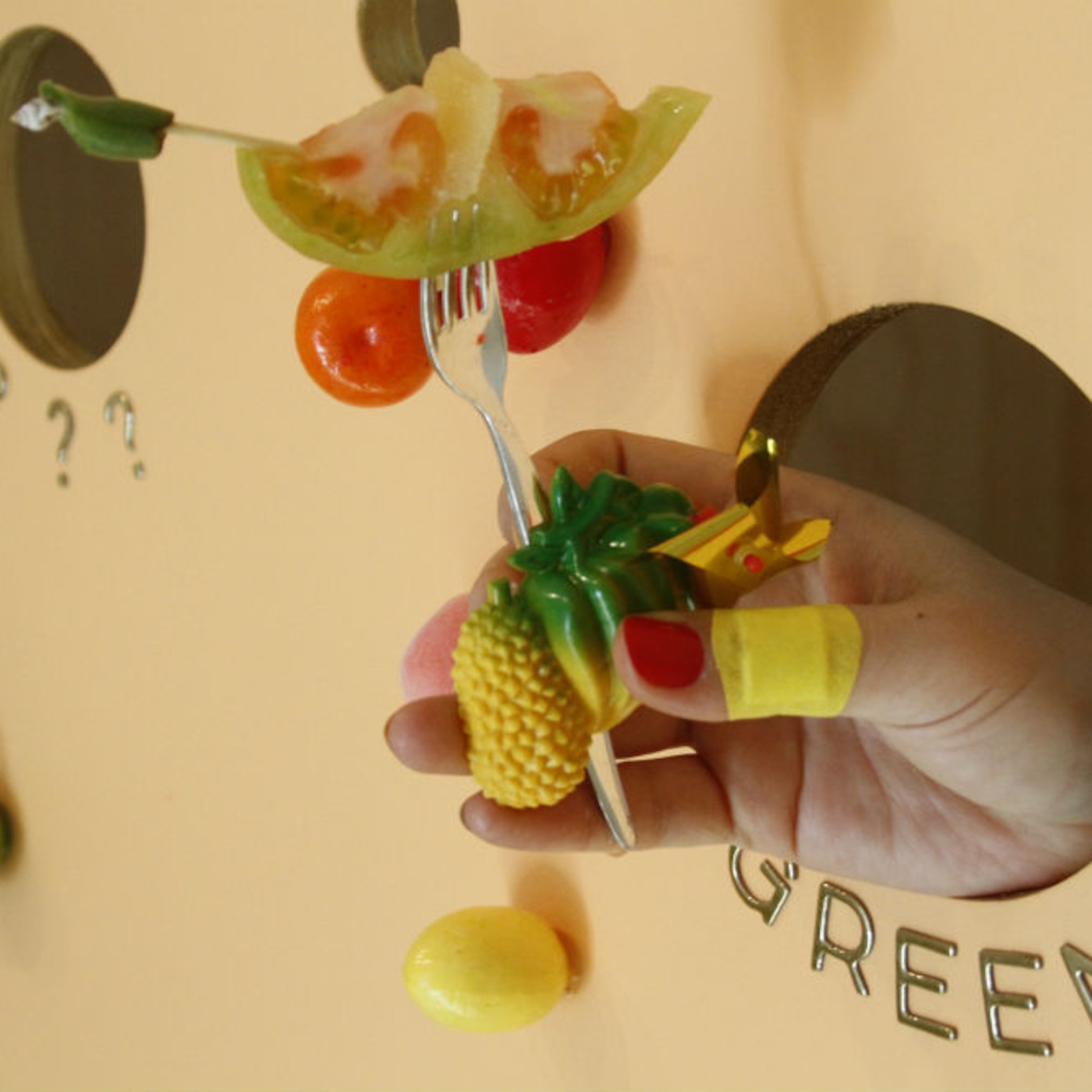
New York-based artist Alison Kuo talks about: living in the Financial District of Manhattan--how she came to live there and what it's like; her performances using food, including her recent Chinese restaurant-inspired New Jin Guang II at Motel in Brooklyn and her piece 'Serve Me a Drink;' her being from Texas (Dallas), and the Texas expats that she's congregated with in New York; thoughts on molecular gastronomy, including her experience eating at the renowned (and now close) WD-50; her popular photo blog Accidental Chinese Hipsters; her love of tiny old people; her route to performance through teaching ESL to adults; and as a bonus, she and Michael Shaw play a game of name-a-food-artist. The Conversation's website: http://theconversationpod.com/ Please subscribe to The Conversation on iTunes, and leave a positive review: https://itunes.apple.com/us/podcast/conversation-artist-podcast/id481461646 The Conversation on Stitcher (the alternative to iTunes): http://www.stitcher.com/podcast/wwwstitchercompodcasttheconversation/the-conversation-art-podcast?refid=stpr The Conversation on Facebook: http://www.facebook.com/pages/The-Conversation-An-Artist-Podcast/254884424579431 http://instagram.com/artistpodcast Twitter: @artistpodcast Your support of the podcast is very much appreciated- donations can be made via the website, and help keep the show going.
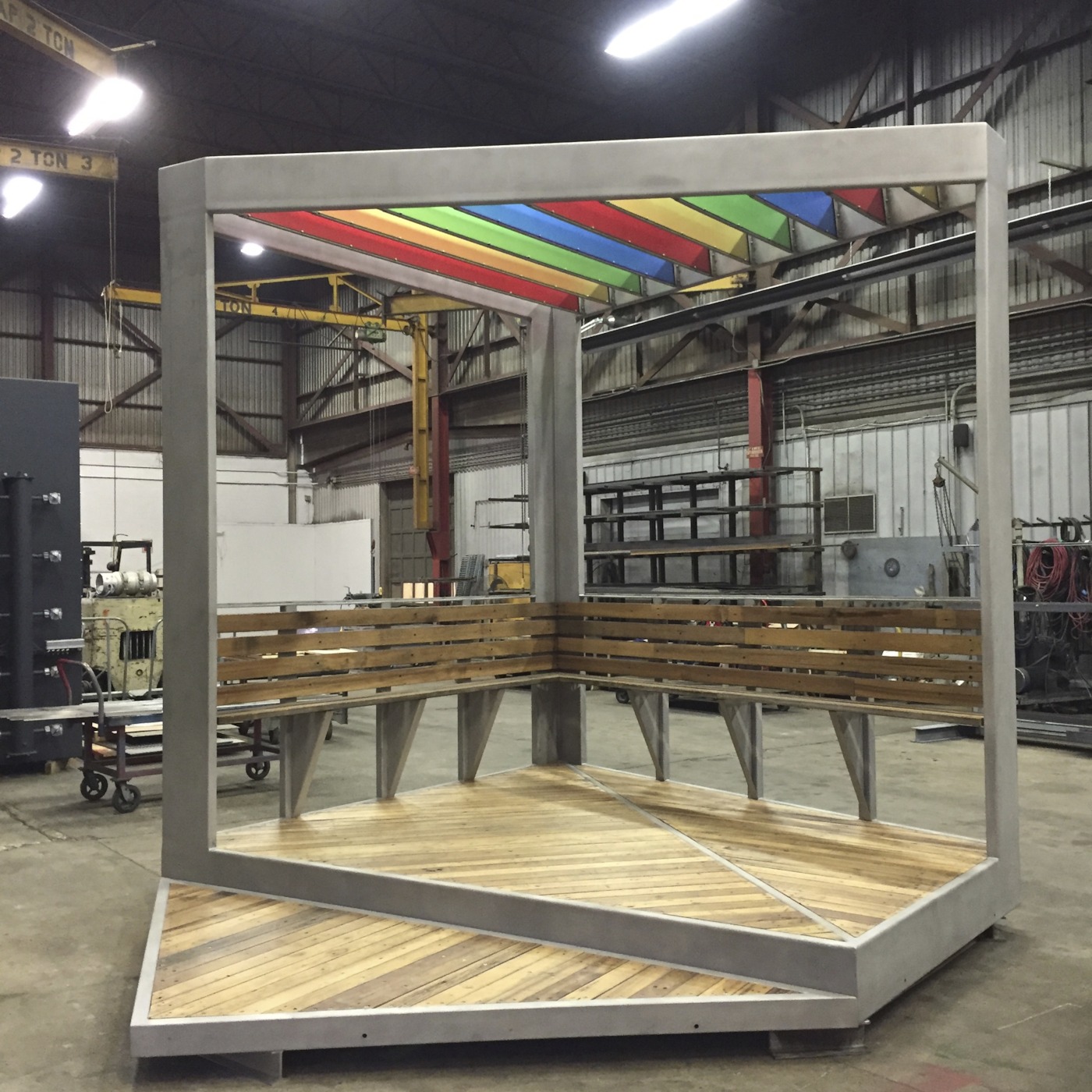
New York-based artist Austin Thomas talks about: being a 'gallerartist' - a mix of artist and gallerist, and the various ways she's engaged the art world and community through her Pocket Utopia galleries and projects; her experiences both working for and collaborating with artists as a gallerist and artist advocate; her community organizing-oriented public sculpture 'the perch,' which will be unveiled in the spring (of 2016); her path to living in Chelsea, despite originally trying to buy a house in Williamsburg; and her upcoming incubation period in which she contemplates her next steps as an artist advocate, booster and supporter of community-building art ventures. The Conversation's website: http://theconversationpod.com/ Please subscribe to The Conversation on iTunes, and leave a positive review: https://itunes.apple.com/us/podcast/conversation-artist-podcast/id481461646 The Conversation on Stitcher (the alternative to iTunes): http://www.stitcher.com/podcast/wwwstitchercompodcasttheconversation/the-conversation-art-podcast?refid=stpr The Conversation on Facebook: http://www.facebook.com/pages/The-Conversation-An-Artist-Podcast/254884424579431 http://instagram.com/artistpodcast Twitter: @artistpodcast Your support of the podcast is very much appreciated- donations can be made via the website, and help keep the show going.